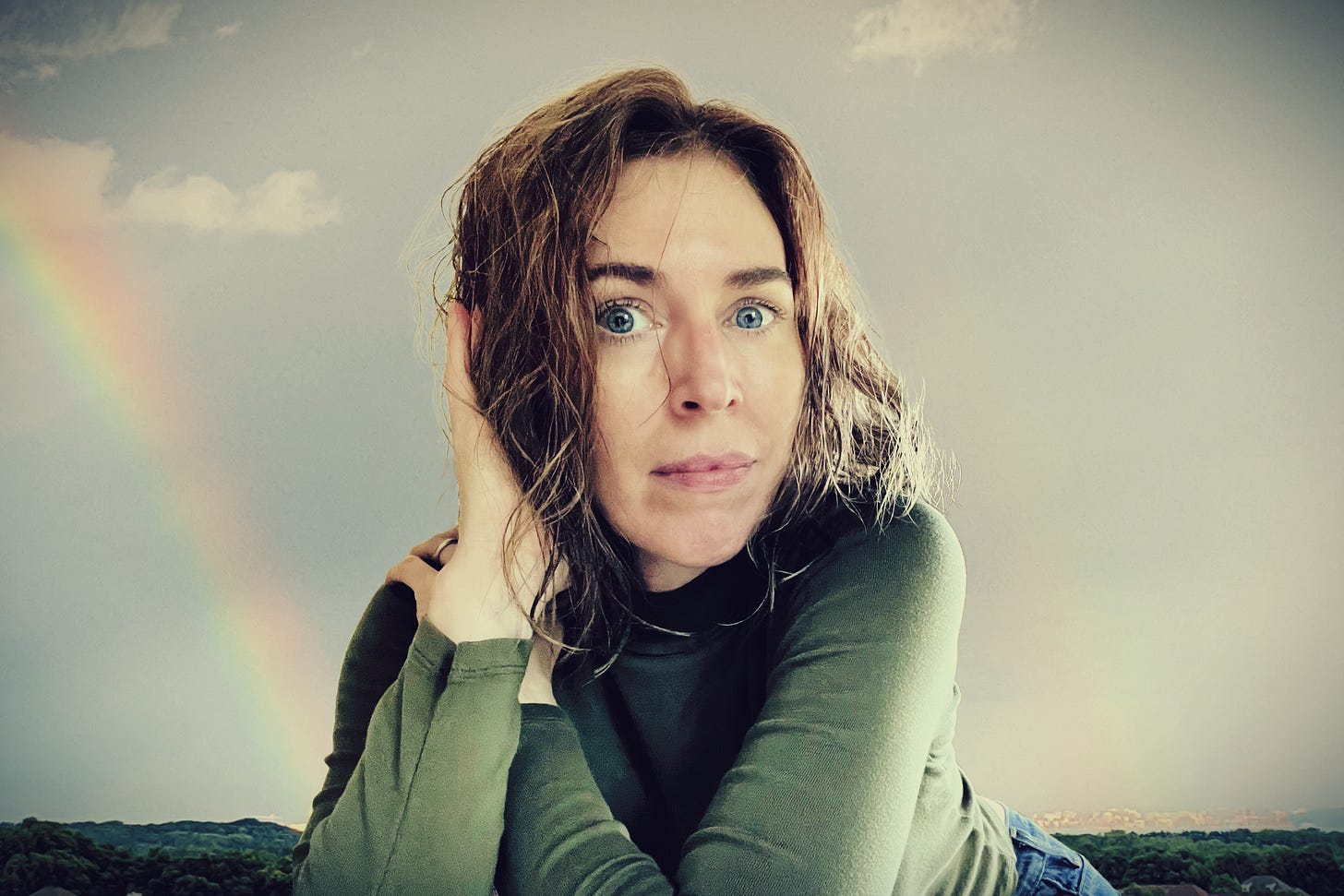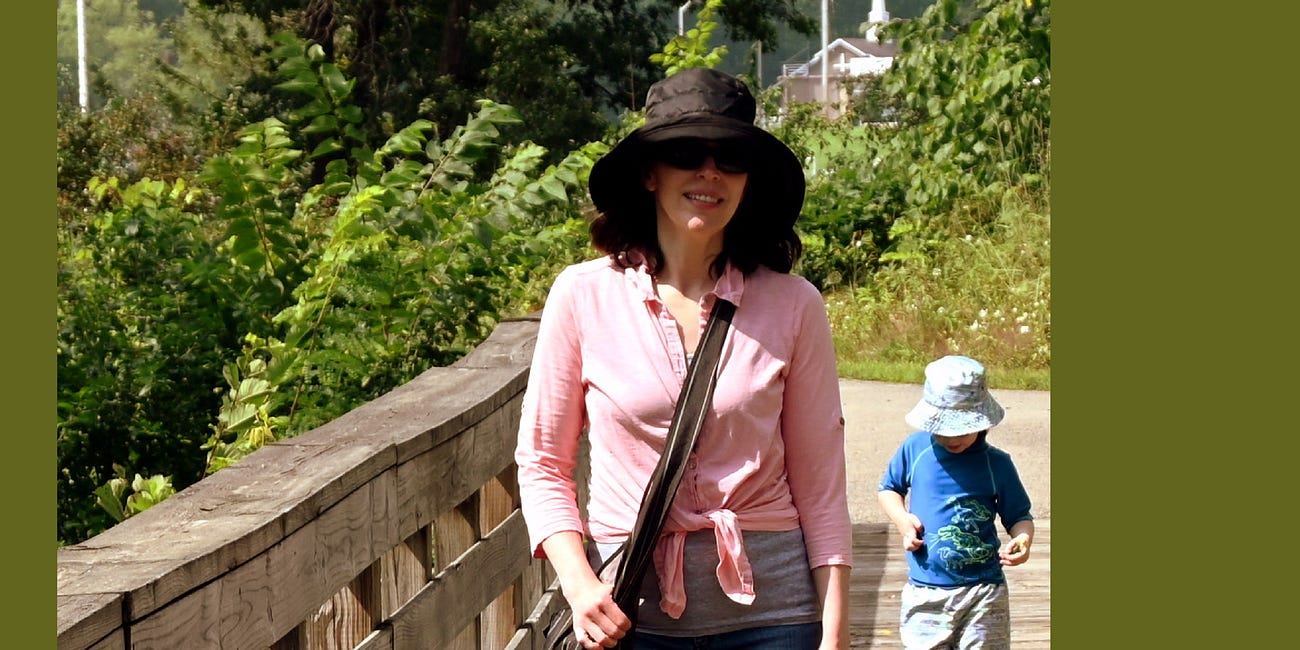My youngest and last is seven. Pretty soon, he won’t even be sort of little anymore, just like he thinks he isn’t right now. There’s a lot of parenting stuff I’m so happy to be done with. Like the hoppin’ mad out-in-public fits. Or the constant feeling of scanning an environment for safety issues. Or hauling a bag around just-in-case for you-know-what. If you’re in those phases, don’t worry. It’s true: it really won’t last forever.
Of course, there are lots of things I’ll miss too. Like the warm, squishy feeling of holding a little one. Or watching my kid’s faces react to simple, but new-to-them, everyday things. Or having a better reason for always feeling tired.
Another thing I’ll really miss is the magical sound of a young child off in la la land. You know that sound. A child’s sweet voice narrating conversations and stories in an imaginary world that only they can see.
As soon as my firstborn was a toddler, I became enamored with watching her get lost there. Soon, we learned she needed that time, almost as much as she needed time to eat and sleep. We’d notice if the schedule got too hurried, with no “downtime” in a day, she seemed unsettled. “Nora needs her time in la la land,” we used to say.
More than twenty years later, we say the same about our youngest one. Each day afterschool, after we connect and he has a snack, he spends an hour in la la land before his older brothers tromp into the house.
On days I’m home, I’ll occasionally transcribe little pieces of the conversation going on in la la land. It’s my way of hanging on to a tiny fraction of this fading magic.
Some are observations: “Not that many people know about the west side of Australia.” Some are factual: “Volcano eruptions can cause increased changes to the whole world.” Some purely opinion: “He’s annoying, but cool.” And some are quite dramatic: “I'm in a crisis! Ahh, the coelophysis!”
But whatever conversations are going on, clearly they’re important. They're helping him process feelings and giving him a chance to express complex thoughts in a safe space.
Helping Your Child Find Imaginary Friends, their voice, and calm in La La Land
This is the beginning of a piece I wrote for a local parenting blog. But I’m sharing it here, because it got me wondering: does our need for time in la la land really go away when we grow up? Because I think my 40-something self needs some of it now.
After more than two decades of living surrounded by my kids’ imaginary worlds, I’m wondering what it’ll be like when their la-la-lands finally fade away.
Having older kids, even an adult one, I know something about what’ll happen next with my youngest. His toys covering the floor will change to piles of dirty dishes and clothes. Our worlds will separate at a faster pace. My parenting role will shift further to the sidelines. All normal. All expected, and even good. But it’s different this time, because there’s not another little one behind the growing-up one.
Am I gonna go back to the super serious scienc-y person I was just before I first became immersed in momhood almost a quarter of a century ago? Or am I gonna go back even further to the Dorothy-Ann type girl I was? Like from Magic School Bus, informing myself — and anyone within earshot — “according to my research.”
I stopped playing with toys a few years into elementary school. Maybe I was wired to be a mini-adult. Or maybe it’s cause I was a grow-up-fast Gen Xer thrown into adult roles at a young age. But I think it’s from something bigger too.
Setting the memorization bar so high put a premium on a very narrow skillset, excluded people who had much more to offer, and led to a know-it-all smartness that was annoying at best, and dangerous at worst.
20th century education: a boatload of useless crap
I’m a product of the information age — before the internet, when information was highly coveted, but largely inaccessible. The more you could keep in your head, the “smarter” you were. Or at least the more you could signal your smartness. And wasn’t that really the point?

An up-to-date set of encyclopedias was the pinnacle of status and opportunity for an 80s family.
My best friend had the real deal — not the old, mossy-green set we had at home, a generation out of date. They were navy and burgundy with scrolly, gold-embossed lettering on the spines and the funky Britannica-brand emblem that looked like a pineapple, spiky person. They spanned all the way to President Reagan, showing every bit of his ruddy complexion in full-color newness.
One summer, my best friend and I tried mustering up our 80s no-pain-no-gain mindset to memorize every U.S. president in order. I don’t remember how far she got, but I only got halfway through. It’s really tough to do performative things when there’s no actual performance test to take.
But during the school year, there were plenty of opportunities to perform memory tests. In fact, a huge part of our late 20th century education was memorizing.
In elementary school we were expected to memorize complete lists of prepositions, meaningless “definitions” and number facts that made no number sense. In junior high, we memorized long excerpts from speeches, like Nixon’s resignation speech, and long poems, like “The Raven.”
High school history classes were all about specific dates and events that lacked connection or depth. Math tests hinged on jumbled formulas that magically led to perfect scores. My head continued filling with facts all the way through pharmacy school, memorizing pages of chemical structures and dosing for obscure meds.
Besides being a waste of time, setting the memorization bar so high put a premium on a very narrow skillset, excluded people who had much more to offer, and led to a know-it-all smartness that was annoying at best, and dangerous at worst.
One of my fears about losing my memory when I’m old is that I’ll lose all the good stuff and only be left with remnants of the useless crap I memorized early in life.
Mommy brain needing to upgrade
When I graduated pharmacy school and the memorizing suddenly stopped, I remember feeling almost in shock, like my brain felt so unsettled not doing what it spent years doing. But soon, I got pregnant a few months after graduation, entering a mommy track that I ended up staying on for a lot longer than expected.
As a parent, I quickly discovered that memorizing didn’t help. I had to learn how to learn in a completely new way, by doing, day-by-day through love, boredom, and chaos—and loads of mistakes, mostly my own.
Looking back now, the most surprising thing about parenting is realizing how much my kids have changed me in ways I never would’ve imagined. But I guess it makes sense. Because once you become a parent, your whole worldview starts overlapping with your child’s.
You try to see things through your child’s eyes, notice what they’re noticing and feel what they’re feeling. It’s no wonder overwhelm is a common feeling among parents with little ones — too much input of every kind.
I remember my overworked and underappreciated mom in a state of overwhelm … almost constantly. The look on her face, especially in her eyes, always full of love, but also deep fatigue and guilt. How can you hide those feelings up when you desperately need a freakin’ break?
Mama’s leaving on jet plane, don’t know when she’ll be back
“I’m leaving on a jet plane / Don’t know when I’ll be back again,” Mom would sing, calming a high stress moment down in the only way she could while still doing the damn laundry and dishes. The never-ending piles of laundry and dishes — the two bitches that never leave you alone.
I know that feeling. I’m sure I’ve had that same look in my eyes. Who hasn’t wanted to get on that jet plane, fly off to la la land, and come back when you feel ready, whenever that is. But some time during the growing-up process, the normal, everyday escapes — not involving external input — get lost.
Playing, pretending, and imagining aren’t for grownups. Yeah I heard loud and clear before I could read. But then why are grownups expected to do exactly that? Instead of playing, pretending, and imagining what they want, parents are pressured to play, pretend, and imagine what someone else wishes for in their la la land.
As my kids’ imaginary worlds fade from view, I yearn for my own la-la-land time so I can find my imagination I gave up long ago. Creating new imaginary worlds that change with me as I grow older can be a buffer from feeling overwhelmed during rapid change, just like it did when I was a young child.
If I take breaks from external input, step away without looking back, and let my mind wander curiously, I know I’ll find that magical place again.
NOTE TO KIDS: Mama needs her la-la-land time.
The Childhood Music That Shapes Who We Are
Music has meant so much in my life. Not as background noise but as a never-ending soundtrack. The sappy kind. The edgy kind. And everything in between. I can rewind back or listen now as the future turns present. It never stops playing. Lately, classical piano music has been filling my head and home. It’s probably becoming part of my kids’ soundtrack, paired with memories of their mom in the kitchen, sometimes toiling, other times puttering. But for me, the music takes me back to my 80s childhood in suburban Chicago. Or, more specifically, to an 1850s Greek Revival on 7 W Eastman in Arlington Heights.
Writing my way forward
I started writing after a panic attack, and I'm not stopping. Plus, thoughts on healthcare anxiety and slowing down the discussion at the doctor's office.










If you've been there once, you'll always be able to find your way back.